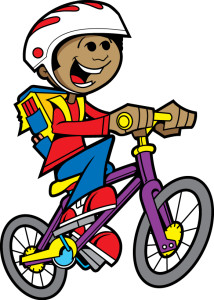Children usually end up with a runny nose every now and then. It is important to note that runny nose is a usual symptom of various childhood illnesses but many parents are often confused on what is exactly causing the sniffles.
Allergies
Hay fever or allergic rhinitis is considered as a common cause for runny nose among children. The allergy symptoms typically include the following:
- Stuffy nose or congestion
- Runny nose with clear discharge
- Sneezing episodes
- Itchy nose
- Red eyes with itchiness and tearing

As allergies linger or worsen, children can also develop headaches, sore throat and coughing. In most cases, the allergies can disrupt with sleep, resulting to irritability during daytime. In most cases, these allergy symptoms are often confused with having a cold or sinus infection.
Infections
Infections can be considered as a likely cause of runny nose, especially in young children. Most of these children end up with viral upper respiratory tract infections or the common cold with the following symptoms:
- Runny nose
- Cough
- Congestion
- Headache
- Sore throat
- Fever (usually low grade but can go up to 102 degrees F)
Remember that a runny nose can also be a symptom of the flu. Generally, these flu symptoms are more severe than the symptoms of common cold, including body aches, high fever and fatigue.
Other possible cause of runny nose
Even though most children with runny nose have either allergies or an infection, there are also other causes which include the following:
- Nasal polyps
- Deviated septum
- Enlarged adenoids
- Rhinitis medicamentosa (occurs after extended use of topical decongestants)
- Vasomotor rhinitis (triggered by exposure to odors, smoke, foods or changes in humidity and temperature)
How to stop a runny nose
There are various treatment options to stop a runny nose. These treatment options target the underlying cause whether it is an allergy or an infection. The treatments that focus on specific nasal symptoms can also provide relief.
- Topical or oral decongestants work by unclogging a stuffy nose and relieving congestion. Just remember though that topical decongestants should not be used in children below 12 years old and the usage should only last for a few days at a time for teenagers.
- Nasal washes can relieve congestion and prevent sinus infections
- Leukotriene antagonists can reduce runny nose, congestion and sneezing episodes caused by allergies
- Antihistamines work by stopping a runny nose and sneezing due to allergies
- Antihistamine nasal sprays can reduce runny nose, congestion and sneezing due to irritants and allergies
- Steroid nasal sprays can reduce runny nose, congestion and sneezing caused by allergies
Always bear in mind that there have been issues raised regarding the safety of cold and cough syrups. In addition, it also includes issues whether the benefits justify any possible risks by using these products particularly in children below 2 years old.
